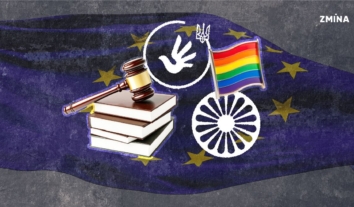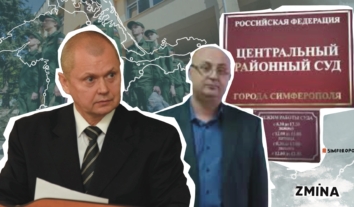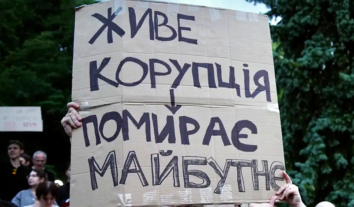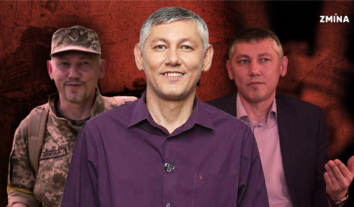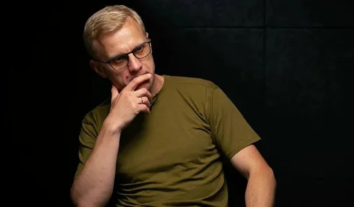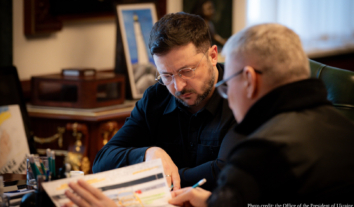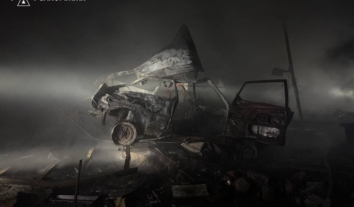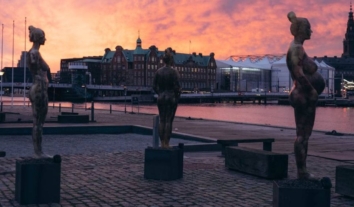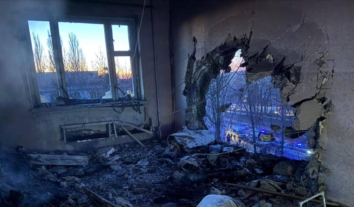The Pain Does Not Disappear but You Learn to Live with It. Three Stories of Wives of Fallen Soldiers
This article presents fragments from the lives and losses of three women whose husbands died in the war. Yuliia from Kyiv, Oksana from Lviv, and Alyona from Zaporizhzhia all unanimously say about their loved ones: “He is worth being known about”.
Their stories are filled with pain. Yet, every day they wake up, get out of bed and live their new day. This article will not contain success stories or motivational advice like “Move on.” There are days and weeks when you get up only to go to the restroom and drink water. And that’s normal.
“Today is Not the Day to Give Up”
Teacher Yuliia Movchan from Kyiv participates in the “Zhiva” (Alive) program, where she first tried painting with oil paints.
“We met in 2007. It was a chance meeting. My sister asked me to cover for her at the kiosk. I gladly agreed. My future husband came there with friends for coffee. He bought coffee there almost every day and noticed that I was new. He asked which chocolate was the tastiest and asked me to choose one. I chose. He paid for the chocolate… and left it for me.
Lyosha loved to ask if I fell in love with him at first sight. I would answer “No”, but there was something about him that touched me.
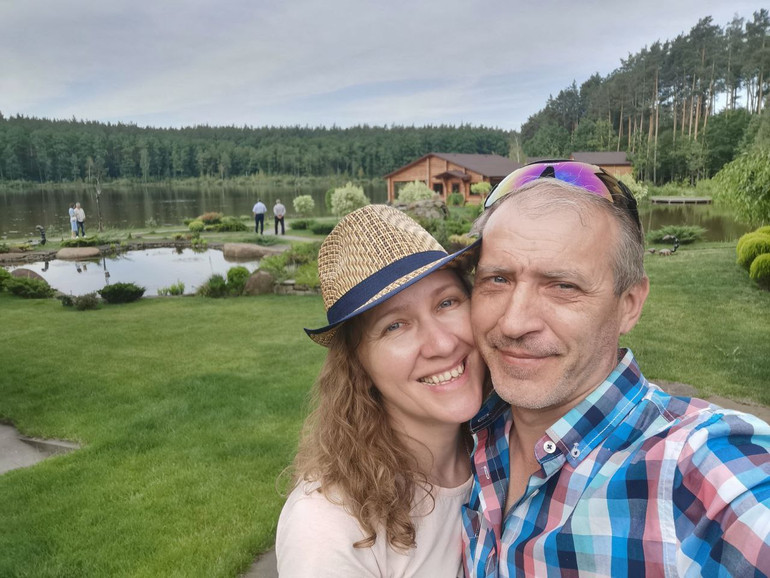
Our first phone conversation was relaxed without those awkward pauses. I probably felt then that Lyosha was a close person to me. Although we were so different. I am calm and balanced, and he was quick, talkative, and had an impeccable sense of humor. He often said: “Learn while I’m alive.” It’s painful to remember these words now.
On our first date, he told me the whole truth about himself. And it was not what I dreamed of at all. But his honesty touched me. For me, the most valuable thing in a relationship is the truth.
In 2014, Lyosha went to the ATO (Anti-Terrorist Operation). And when he was getting ready to go to eastern Ukraine, he already knew where he was going because he had served as a scout in the army.
We maintained our relationship through letters. I wrote to him a lot: when I was happy and when I was angry about something. And I asked him about everything that worried me, and he answered. This correspondence is important in our life.
In the two years in the ATO, Lyosha talked about the war – already so brutal – but I couldn’t grasp that it was real…
On August 18, 2018, we got married. I was 38 years old.
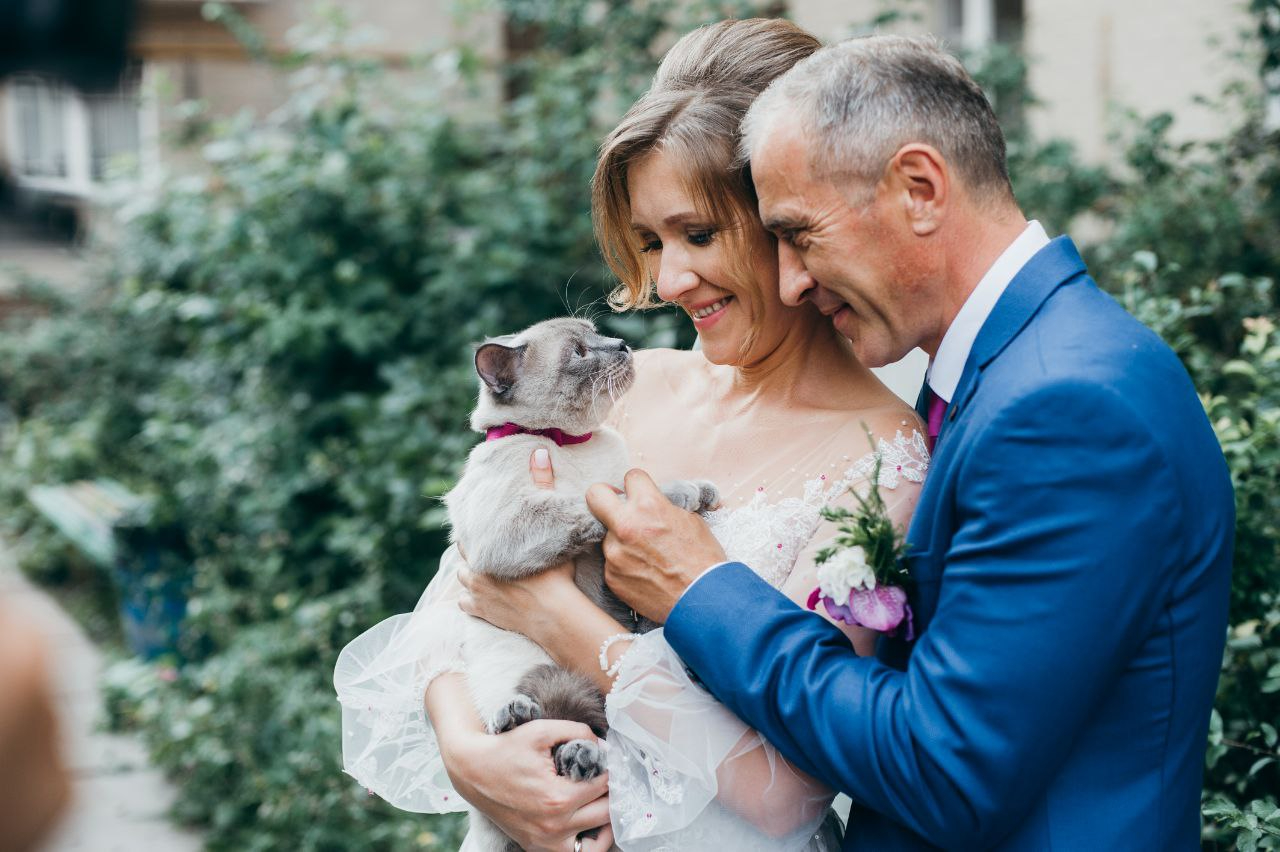
At the wedding, I hardly ate anything. So I was starving. When we said goodbye to the guests and finally were alone, I told Lyosha: “Let’s go to McDonald’s”. We got ourselves some unhealthy food and stopped somewhere under a bridge. It started to rain. We ate this food in the rain, and I felt like the happiest wife.
February 24, 2022, I remember well… We didn’t even have conversations – to go or not to go.
Lyosha was originally from Bortnichi near Kyiv, so we went there. His friends were already gathering there.
From that moment, he was on duty every night. With good experience, he trained the guys and girls who came to their base. I was in awe of the people! So different – young and older – they all learned diligently, not complaining about health or fatigue. After a month, they formed a battalion. Initially, they defended Kyiv region, particularly Lytizh, and somewhere in mid-April, Lyosha said they were heading east…
On April 19, I saw him off and took some photos… Unfortunately, there are no photos of us together from that last day.
It was so hard to let go. Like never before. You can’t know or feel that you are seeing a person for the last time. But I didn’t even allow that thought.
On April 28, he called and said he was being given leave to Kyiv for three days. I was incredibly happy! We wanted to have children, and it didn’t work naturally. We decided on the IVF procedure and went through all the preparations. The only thing left was to provide the biomaterial. And in those three days of leave, we could have gone to the clinic. But he didn’t come.
Later, I learned that he went to the Donetsk region with his comrades.
On May 1, Lyosha died.
Under the village of Velyka Novosilka in Donetsk region, there was a missile attack; they went to check if there were any civilians under the rubble. They got people out, and a cat… The commander showed a safe place where they could pass. But there was a mined road, and Lyosha said: “We can’t let them go alone.” He and three comrades went to accompany them. And when they were returning, the shelling began.
I didn’t know what a VOG (an abbreviation from Russian – for the “launching of fragmentation grenade”) was until they told me he died from them. These are small ammunition that burrow into the ground and then explode with a large number of fragments. And it was these shells that hit the place where Lyosha was with a comrade with the call sign “Lefty.” Only “Lefty” survived; Lyosha received a severe wound to the face and head…
Once, Lyosha made me promise that if something happened to him, I would live on and not even think about doing anything bad to myself. At that time, I didn’t know how important that promise would become to me.
I have a cat and a dog that friends gave me 40 days after Lyosha’s death. I named the dog “Shadow” – that was his call sign. When I realized I couldn’t cope, I turned to a psychologist. In particular, I joined the “Zhiva” project in April 2023, almost a year after my husband’s death. We painted for two days. During this time, we got to know the girls, someone brought tea and treats. And it wasn’t so scary to take that brush in hand anymore.
I liked mixing paints… Here I am painting with bright colours, and the artist looks and advises toning them down a bit: “There should be a shadow here, look how the fabric on the clothes casts a shadow…” Shadow… like Lyosha’s call sign.
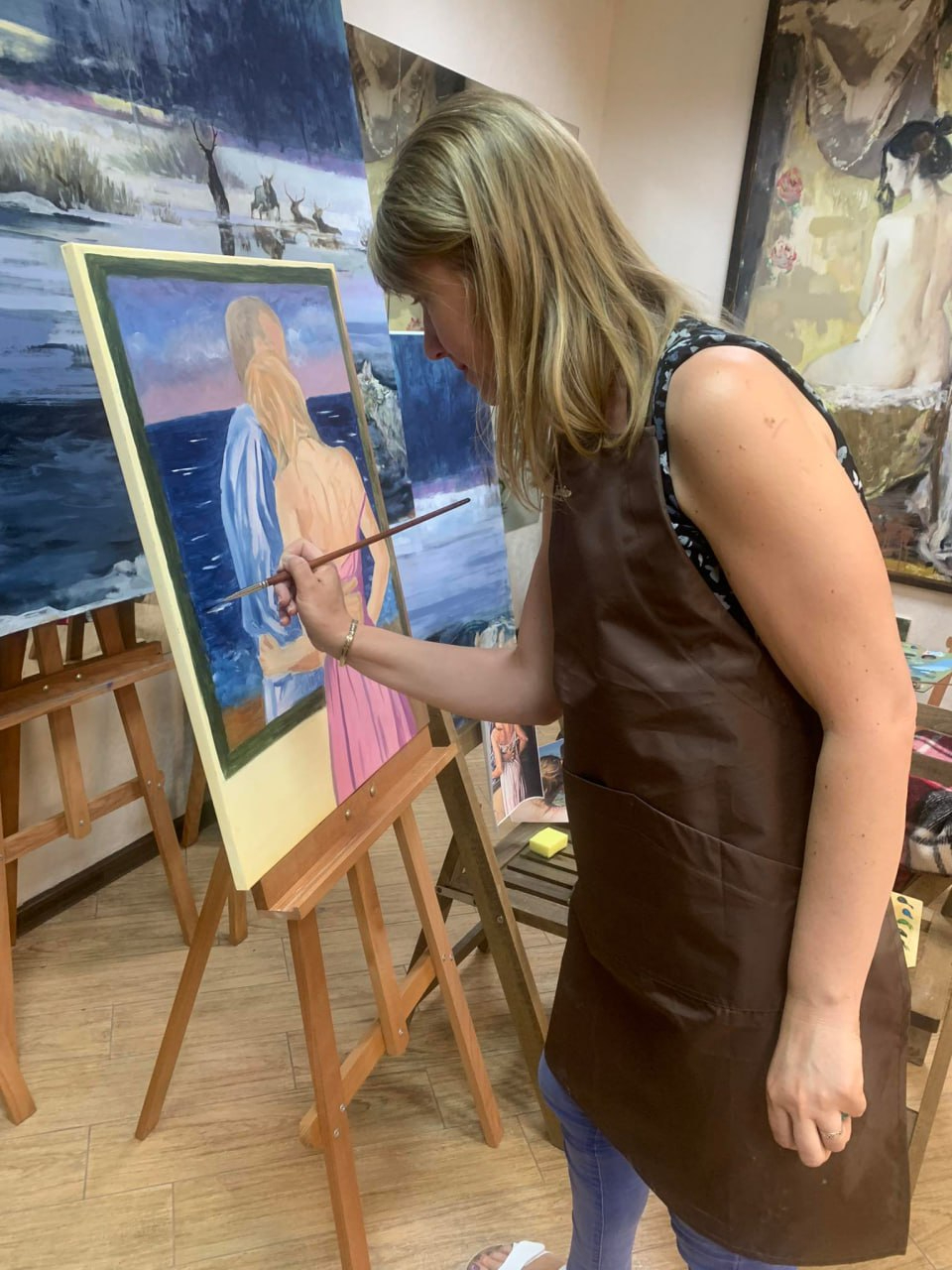
What would I wish for other women who have lost their loved ones?
Don’t think about suicide; it won’t help you meet him. And our men fought so that we could live. You need to give yourself time. I’m grateful to my relatives who allowed me to be alone with my grief and cry it out. But for someone, it’s important to have someone nearby. Try to pull yourself out into society. It won’t happen right away. Maybe at first, it’s worth talking to girls like you because only they can understand you. But later, it’s worth expanding your circle of communication. It’s hard to mature to new relationships, but I want to have someone who understands and supports me. And I also went for massages. I didn’t go according to a schedule but according to my feelings. And I highly recommend it because the body is tense like a spring for a long time… Before the full-scale war, I bought frames with wise sayings. One of these frames is in the most noticeable place in the apartment. And every day I read these words as a reminder: “Today is not the day to give up.”
“Don’t Put Off Your Dreams”
Oksana Dudar from Lviv is a journalist and the author of “Widow’s Diaries”, which she started writing on March 6, 2022, the same day she learned about her husband Viktor’s death.
Our story with Viktor is a classic student story. In Chernivtsi, I studied philology, and Viktor studied law. Our meeting was funny: I needed to move a wardrobe in a dorm room, so I asked a friend to help. He brought some backup – that’s how Viktor appeared on my doorstep. Viktor almost immediately asked me out. It was a rock music festival in the university park. It was raining, and we got soaked…
We married soon and I gave birth to our daughter, Sophia, that same year.
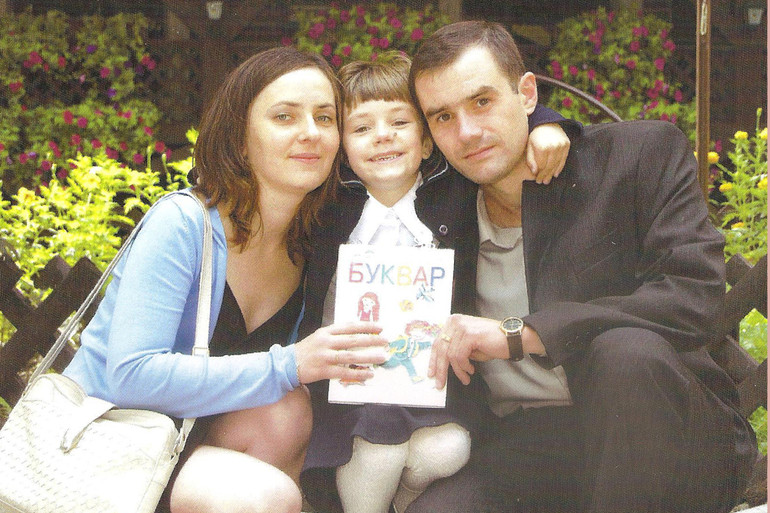
Viktor was the kind of person who cared; he was honest. He couldn’t pass by if he saw some injustice, whether in life or at work. So, it was not surprising when in 2014, right after the illegal annexation of Crimea, he went to the military enlistment office on the first day… He served for about a year, and even after demobilization he constantly participated in military training and was in the operational reserve. It was extremely important to him. And when we followed the news on the eve of the full-scale invasion – his backpack was already packed. And on the morning of February 24, he called his comrades and went to the military unit.
…There was a bustle in the military unit. We talked a little; I didn’t want to distract him. I thought everything would be fine, and we would see each other soon. Soon Viktor sent me a video of their departure. A big blue bus, and there were guys – so different – shouting “Ukraine above all!” Most of them are already dead.
Viktor always called. Even when the connection was poor, he managed to say: “All is well” in just a few seconds.
They were sent to the Mykolaiv region. One day he called me happy because he finally wasn’t sleeping “under a pine tree.” They had settled in a building where they could use a normal toilet, and the locals came to cook hot food. We still talked on the morning of March 2, but after that, the connection was lost…
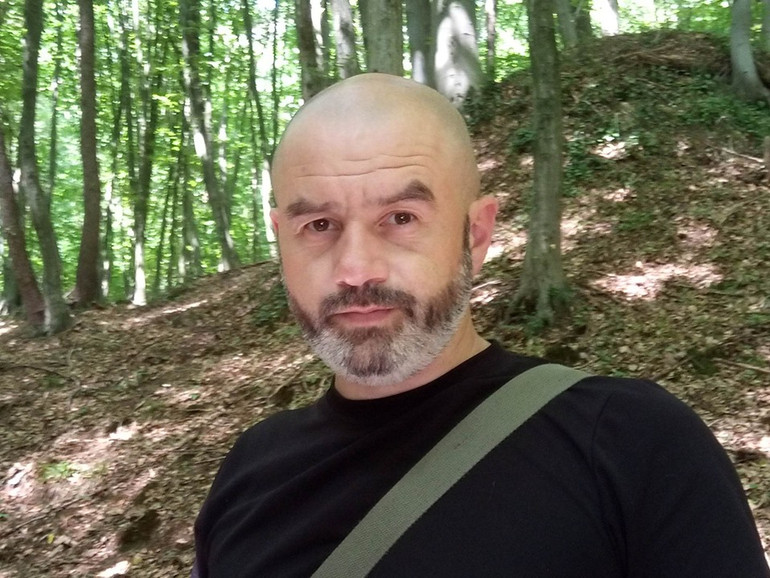
There was no news until March 6. I comforted myself by thinking that the situation in the country was difficult and that there was nowhere to charge the phone. I didn’t have the feeling that the worst had happened.
… All that was mentioned in Viktor’s funeral notice was that he had died from a gunshot wound to the lungs. It took me a long time to find out what actually happened to him. It was important for me to know.
In the summer, wounded soldiers were brought by evacuation train from Dnipro to Lviv, among them was Viktor’s comrade. He said that in the ward with him was a guy who had been in the same positions with Viktor…He assumed that I could talk to him. I was so stunned by this that… I refused. But then I went to the cemetery, stayed a while, calmed down, and returned to the hospital to hear the story about my husband.
Viktor was on the roof of one of the buildings in Voznesensk, covering the grenadier. Usually, two shots are made to avoid the sniper detecting the position. But four shots were made because the first two didn’t work. After that, they retreated, but Viktor returned to retrieve the wire from the ATGM. That’s when the sniper shot him.
… We were never taught what to say in such moments. I remember how it irritated me when people said, “Hold on.” I couldn’ t stand this phrase. I didn’t understand what it meant. Yes, I was doing something, but all my thoughts, emotions, and feelings were tied to one event. And there’s nothing you can do about it.
A grieving person is vulnerable. Any “wrong” word can hurt. Many wives I talked to said that even after a year, they weren’t ready for a psychologist because they didn’t want to be brought back to “that” situation. I found solace in Facebook posts: I wrote about what I felt. My voice would disappear when I started talking about my husband’s death. So writing was my way of talking about Viktor. Friends once noticed: why don’t you organise these posts into a book?
In the “Diaries,” there are a lot of memories of Viktor and me. There are neither fictional characters nor fictional events…
I don’t dare to give advice. I would say only one thing: don’t put off your dreams!
“Stop underestimating yourself, you are much cooler than you think”
Alyona Prokopenko from Zaporizhzhia, author of the project “Darling, I Live”.
I met my husband Illya Voloshyn in 2018 on the embankment in Zaporizhzhia. He and his friends were looking for a girlfriend for a friend, and he met me.

Together, we were somehow so cosy. We both tried to catch the other if something happened. Our family phrase was: “Do it, don’t be afraid – I’ve got you“. We knew: that even if something doesn’t work out, you have me, and everything will be fine.
Illya went to the front as a volunteer almost immediately.
On October 24, 2022, there was an attack at their location in the Zaporizhzhia direction, and Illya received a serious injury to his internal organs. Illya spent several days in intensive care and survived two heart stoppages, but on the third one, he passed away on October 30. He regained consciousness several times, and I am glad that Illya knew he was not alone.
I never worried about him. He was an activist of the Maidan, served from 2014 to 2017, and was a fearless person. Illya was not afraid of death, he was afraid of living an empty life. So, we constantly organized some fantastic outings, and trips. We were on fire!
He knew he could tell me everything. And even when a comrade said that Illya was wounded, I was ready for his disability, and psychological problems related to the war. I knew I could handle everything. But death… you can’t prepare for that.
The idea of art therapy is not new, but my contribution was that I suggested it to Yaryna Herashchenko, who implemented it into the project “Darling, I Live” together with her mother, Viktoriia Herashchenko. Viktoriia has been working as a crisis psychologist since 2014 and has extensive experience working with the wives of fallen soldiers. I don’t like it when people say “widow.” We are the wives of fallen soldiers. And this is important to articulate.
The program lasts eight weeks and includes closed sessions with a psychologist and art therapist. For example, in one of the sessions, we made notes about what our husbands used to say to us. And I remembered Illya’s words:
- “You can be loved not for something, but just like that“.
- “The world will always accept you as you are, just don’t be afraid“.
- “Silence is death“. That’s why music always played at home, we organized mini-parties. On the other hand, silence in personal development was also unacceptable. We were always striving for something.
- “Stop underestimating yourself, you are much cooler than you think“.
Unfortunately, there is too much judgment. Once I posted a photo from a beauty salon when I dyed my hair. Someone wrote me something like, “It’s none of my business, but in your position, it’s inappropriate“.
I replied to that woman: “Yes, it’s none of your business“.
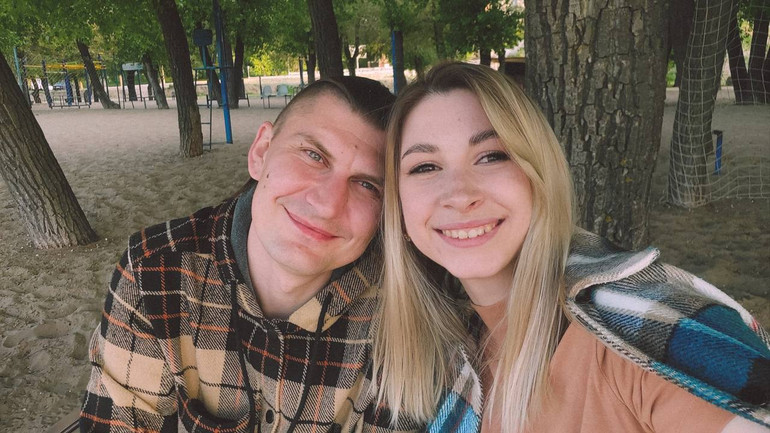
But just imagine what women who lost their husbands more than a year and a half ago might feel. And if they even enter into new relationships, it’s scary to talk about… Real bullying begins!
I don’t want to give any motivation. Because it doesn’t get easier – you just learn to live with it. You learn to enjoy small things, communicate with friends, go to places…but the pain is somewhere in the background.
However, suffering requires nothing, but to be happy requires effort. Happiness won’t come just like that. And somehow you have to find the strength in yourself to live your life, to find a goal.
The environment can become your support, but first, you need to find support within yourself.
It was important for me that people didn’t treat me… as helpless. At first, I’d come to a company of friends – and everyone would suddenly fall silent. I said I was fine, and you couldn’t make it worse. Just be yourselves with me. Because I am here, I am with you.

